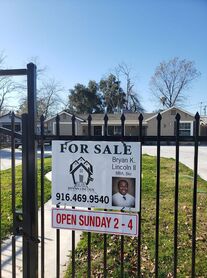|
Downsizing is one of the most emotionally challenging moments in seniors face. In time, however, it can also be one of the most liberating. The anxiety seniors feel over downsizing isn’t just the purging of belongings or moving to a new place; it’s also stressful to decide what to do with your current home—a place where you may have made many cherished memories.
Considering downsizing after retirement but not sure what to do with your home? You may feel overwhelmed and unsure of where to start. Here are three ideas you can explore to help make your decisions a little easier. Get a Lump Sum: Sell Your Home Many seniors choose to sell their home to pay for a smaller house or an apartment in an independent living facility. The first thing you need to do is research what your current home could fetch on the housing market. Research the average sticker price for homes in your area of similar size and features. You may find out that with a few simple upgrades, you can increase the resale value of your home substantially. With a lump sum from a home sale, you can put a downpayment on your next residence or, even better, buy it in cash outright. Since many seniors have often paid off their mortgages, you can even plan to purchase a new place that is far less expensive so you have some extra cash to cushion your retirement fund. Earn Monthly Income: Rent Your Home Seniors who downsize into a smaller residence can earn regular income by renting out their old home. This can be especially helpful for seniors living on a fixed income during retirement. The additional monthly cash flow, especially if your mortgage is already paid off, can help fund post-retirement fun like travel. Just remember you have to foot the bill on any big fixes your tenants require. And you may suffer financially if your home lies vacant for a few months or a tenant doesn’t pay you rent. Many seniors have embraced the role of technology when it comes to renting their homes. Turn your home into a vacation rental by listing it on Airbnb, Turnkey, or VRBO. You can rent your home for both short-term and long-term guests. Either way, you can also hire a property manager to do the heavy lifting for you, so you can just sit back and earn income. When looking for a management company, find one that provides tenant screening, seamless booking, cleaning services for new guests, and all-hours local support. Protect Your Investment: Keep Your Home in the Family Letting a loved one move into your home after you downsize has several benefits. You can keep your home in your financial portfolio, protecting the investment you have spent decades to build. It’s a way to let your loved ones enjoy their inheritance before you pass on. It also helps to know your home is being cared for by people who are not strangers. Your family member can manage the upkeep of your home, make upgrades, keep the lawn tidy, and oversee remodeling projects. However, one of the biggest benefits isn’t financial; it’s emotional. With your house still in the family, you can return whenever you feel the need. Whether it’s to celebrate a holiday or for a family dinner, you don’t have to say quick goodbyes to the place that has provided the foundation to many of your life’s memories. Deciding what to do with your home after downsizing isn’t a process that should be rushed, but sometimes you don’t get a choice. If you can’t take your time to think through all the options, try to focus on the decision that sets you up for financial success. You friends and family can be your support as the other pieces fall into place. Article contributed by: Jim Vogel
0 Comments
Leave a Reply. |
Archives
July 2024
Categories |

 RSS Feed
RSS Feed